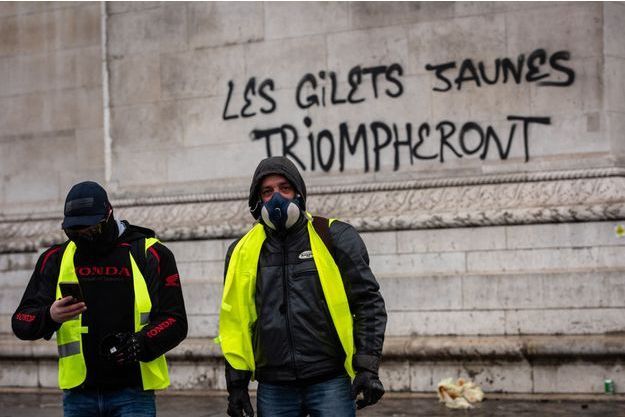
The Verso blog has translated a piece by Antonio Negri analyzing the novelty and transformative potential of the gilets jaunes (“yellow vest”) uprising in France. As Negri writes, the movement has so far rejected any political mediation by established parties from both the left and the right, despite considerable efforts by such parties. This reflects the complex heterogeneity of the participants, but also their shared disgust with political status quo. Here’s an excerpt from the piece:
We have already spoken about the lack of social intermediation created (intentionally) by the Macron government. To this corresponds, in vitro, as if it were a mirror image, the behaviour of the gilets jaunes: they also refuse representation and intermediation, from the Right and the Left, as terrains upon which to advance a mediation of the conflict. Proof of this is the difficulty opposition parties have had trying to get in on the game. The Right, as has been noted, claims to have a heavy presence in the movement. But while this may be true for some more extremist factions, it is much less true for the Front National. The Left has also tried to get close to the movement, sadly using the tired old methods of instrumentalization. The idiotic idea that it is possible to “use” movements of this kind, utilising them in the fight against a right-wing government, is also alive and well in France. It is the eternal dream of putting Father Gapon to work! But this has never happened in the history of the workers’ movement. Or rather, when it has happened, it was because the militant organisation of the working class had invested the spontaneity of the movement and transformed it into organisation. Is this what is happening now? When it is small Left groups organising within outbreaks of metropolitan violence, and when the CGT, completely extraneous to these movements, pathetically insists on increasing wages? I add here one last reflection on this point: is it possible that this situation will give birth to a movement like the 5 Stars? It is possible, and it is even probable that attempts have been made right from the start – this does not mean to say that they will succeed. But we will have time to discuss this in the future. Solutions become difficult where (as we see with the Italian test-case) Left and Right have disintegrated around an “extremist centre” veiled in terms more or less technocratic or “benevolent.”
So what now? We must wait and see what happens. Whether there will be a fourth Saturday of mobilisations called by the gilets jaunes. But it is clear that we must continue to develop our reflections. Allow me, then, this ingenuous question: how can a multitude, characterised within insurrectionist movements, be diverted from moving rightward and transformed into a class, into a force with the power to transform social relations? My first reflection is this: if it is not transformed into an organisation, a multitude of this kind is neutralised by the political system, it becomes impotent. The same is true for its reduction to the Right, but also to the Left: it is only in its independence that this multitude can function. And then a second reflection: when we say organisation, we do not intend the party form – as if only the party-state were able to give organisation to the multitude. An autonomous multitude can function as a counter-power and, that is, as a vision able to weigh long and heavily on the “government of capital” to force it to concede new spaces and funds to the wellbeing of society. The organisational structure provided for by the democratic-American “constitution of parties” is struggling to cope with its incorporation into neoliberal politics. What is more, if there is no longer any possibility of the multitude coming to power, there is nevertheless the possibility of systematically keeping an insurrectionist movement open. This situation used to be described with the term “dual power”: power against power. The events in France tell us only one thing for sure: it is no longer possible to shut down this relationship. The “dual power” situation will stand and will endure for a long time to come, either latently or, as is the case now, in its express, manifest form. The task of the militants will therefore be to build new forms of solidarity around new objectives able to nourish the “counter-power.” This is the only way multitude can become the class.
Image via the Verso blog.